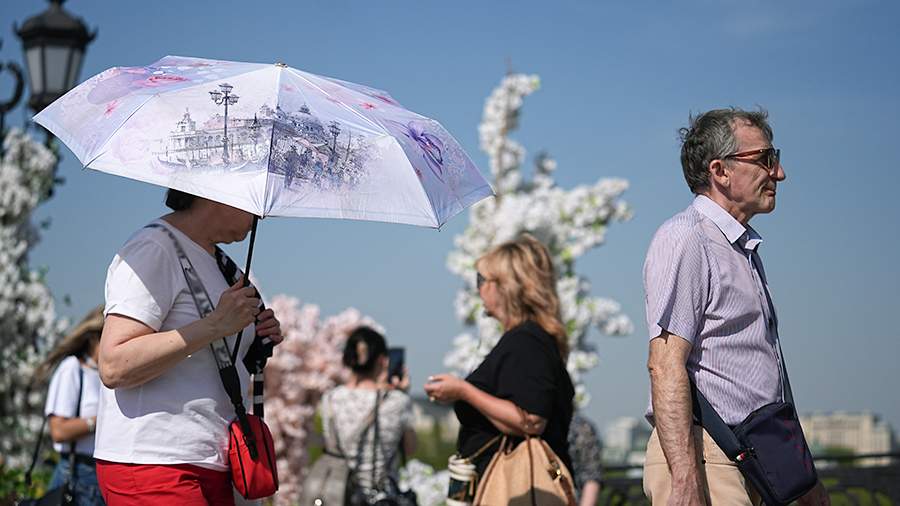The doctor gave advice to people with cardiovascular diseases in hot weather

Heat creates increased stress on the heart and blood vessels, which is especially dangerous in hypertension, coronary artery disease (CHD), heart failure or after heart attacks. Elena Zyatenkova, head of the Clinic for Predictive and Integrative Medicine, the Clinic for Weight Correction and Sleep at the National Research Medical Center for Therapy and Preventive Medicine of the Russian Ministry of Health, internist, cardiologist, gastroenterologist, told Izvestia on May 28 what rules people with cardiovascular diseases should follow in hot weather.
According to her, overheating should be avoided — do not go outside from 10:00 to 16:00, because at this time the UV radiation is maximum. It is worth using an air conditioner, setting the room temperature to +22... +24 degrees, but avoid sudden transitions from heat to cold.
In addition, you should wear loose, light-colored clothes made of cotton, linen, a headdress and sunglasses.
"Drink 1.5–2 liters of water a day, but do not overload the body — with heart failure, excess fluid is dangerous. Give up alcohol, coffee, and sugary sodas — they increase dehydration. Replenish electrolytes (potassium, magnesium) through dried apricots, bananas, mineral water without gas — only after consultation with a doctor," advised Zyatenkova.
At the same time, blood pressure and pulse should be monitored, and pressure should be measured two or three times a day. Heat can cause sudden changes. It is worth avoiding physical activity in the sun — even light loads increase the pulse rate. If you feel dizzy, short of breath, or have chest pain, you should immediately stop moving, sit in the shade, and call an ambulance.
"Eat right. Eat small portions — avoid fatty and heavy foods. Reduce the salt — it retains the liquid, increasing the pressure. Add vegetables, fruits, fish, and dairy products to the diet — they support the heart," the gastroenterologist recommended.
At the same time, it is necessary to adjust therapy with a doctor. So, in the heat, the dose of diuretics can be reduced to prevent dehydration. Nitrates (nitroglycerin) should be kept cool because the heat destroys the active substance. Also, if there is a strong decrease in blood pressure, the doctor may temporarily reduce the dosage of antihypertensive drugs.
The cardiologist stressed that you should immediately call an ambulance if you experience: pressing and burning chest pain radiating to your arm, neck, jaw, severe weakness, cold sweat, confusion, shortness of breath at rest, swelling of the legs, wheezing when breathing, temperature above 38.5 degrees and rapid heartbeat.
The doctor also advised not to swim in cold water, because a sharp temperature drop causes vasospasm. In addition, it is worth quitting smoking, because nicotine narrows blood vessels, increasing the load on the heart. At the same time, you need to sleep for seven to eight hours. Lack of sleep increases stress levels, the expert recalled.
The therapist clarified that people with heart failure need to weigh themselves daily: gaining two kilograms in one to three days is an urgent reason to consult a doctor.
"Check the first-aid kit: all medications must be in their expiration date and kept cool. Take precautions, consult with a cardiologist, and listen to your body. Before the start of the summer season, visit your doctor to adjust your treatment," concluded Zyatenkova.
Earlier, on May 17, dermatologist Zarema Omarova told Izvestia that under the influence of ultraviolet radiation, serotonin is produced in the body, which improves the emotional state. However, excessive exposure to sunlight can be harmful to health. Insufficient UV protection can lead to burns in the short term, and in the long term to premature skin aging (photoaging), disorders of cellular processes, and even the development of cancer.
Переведено сервисом «Яндекс Переводчик»
